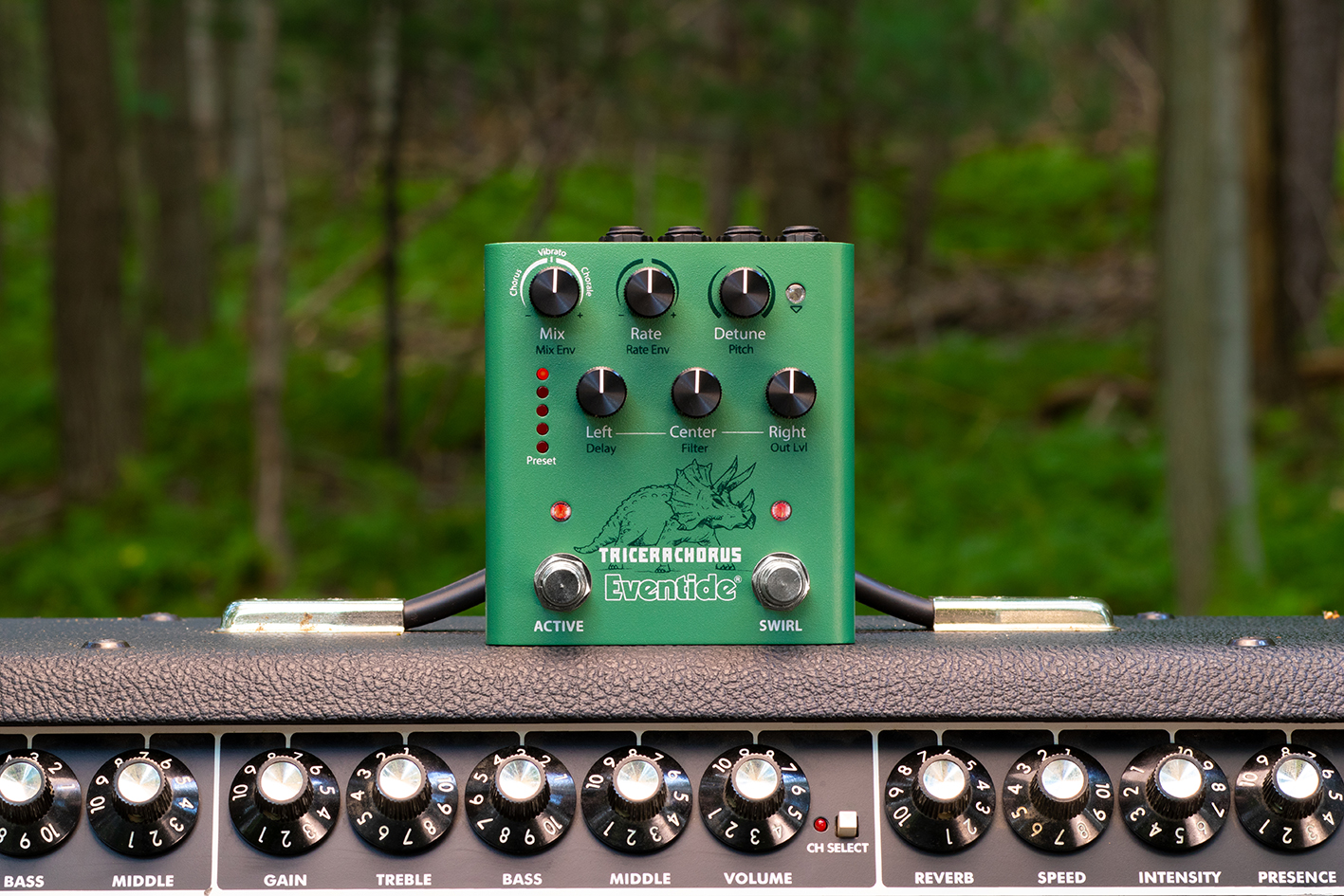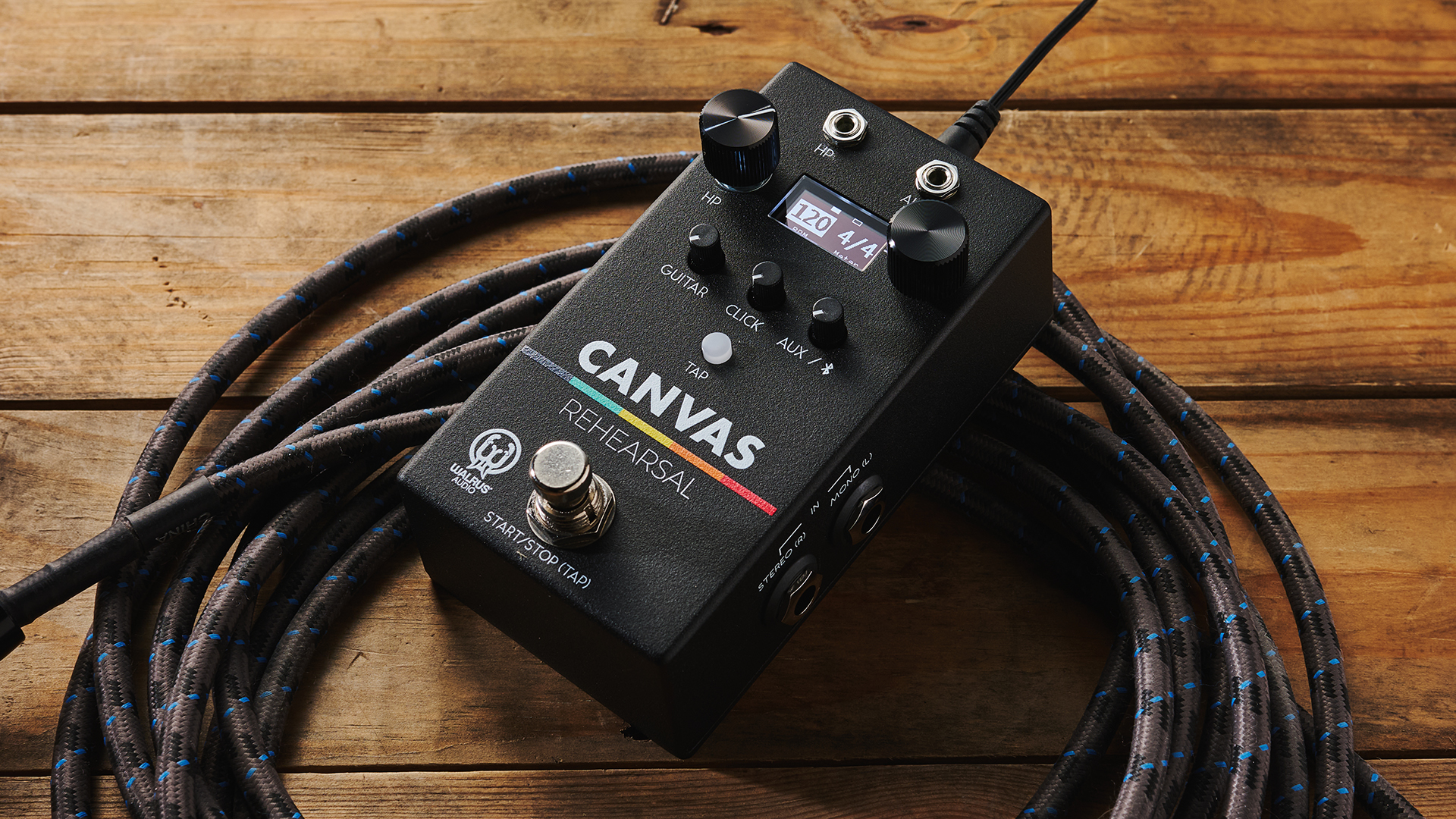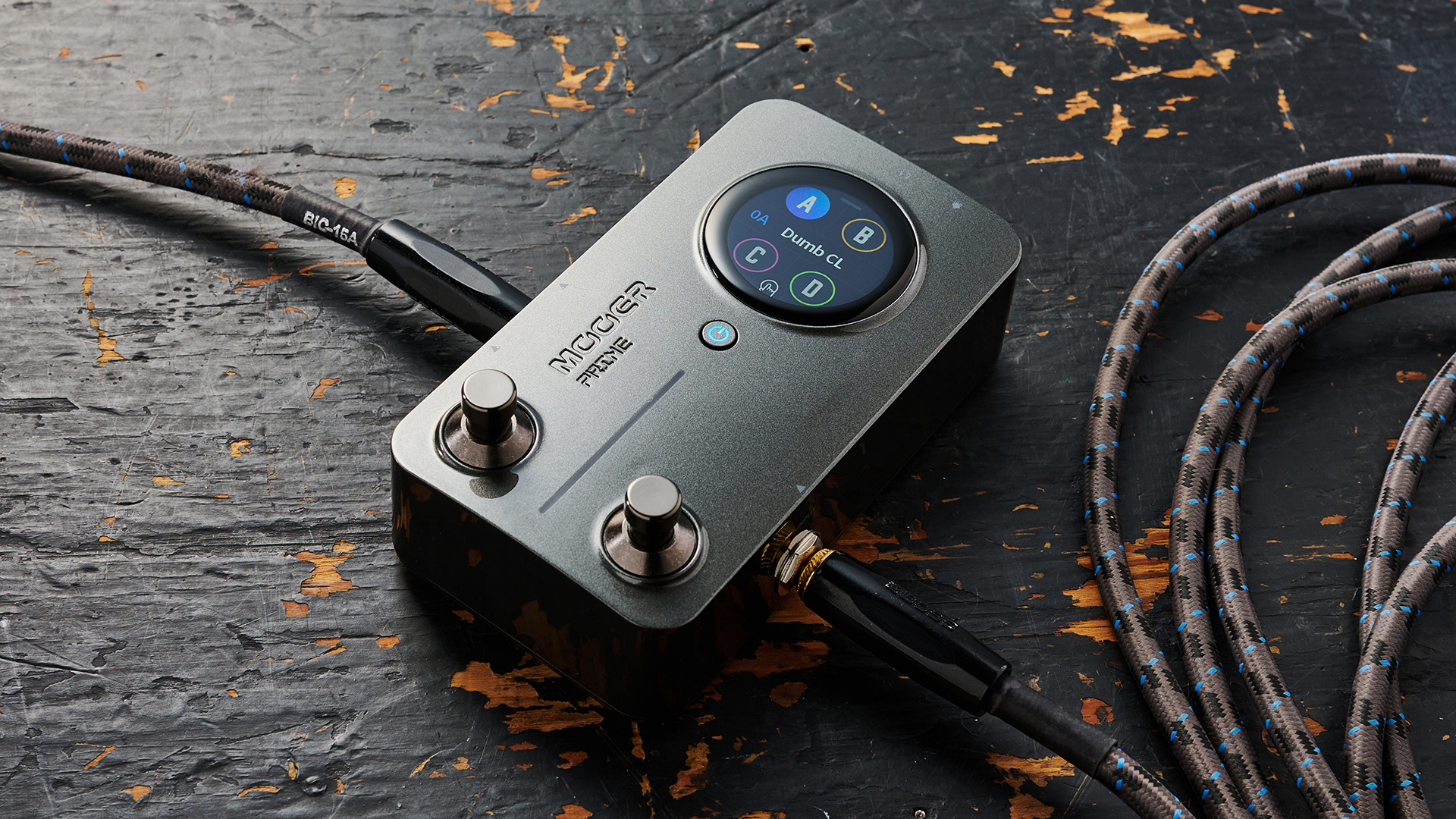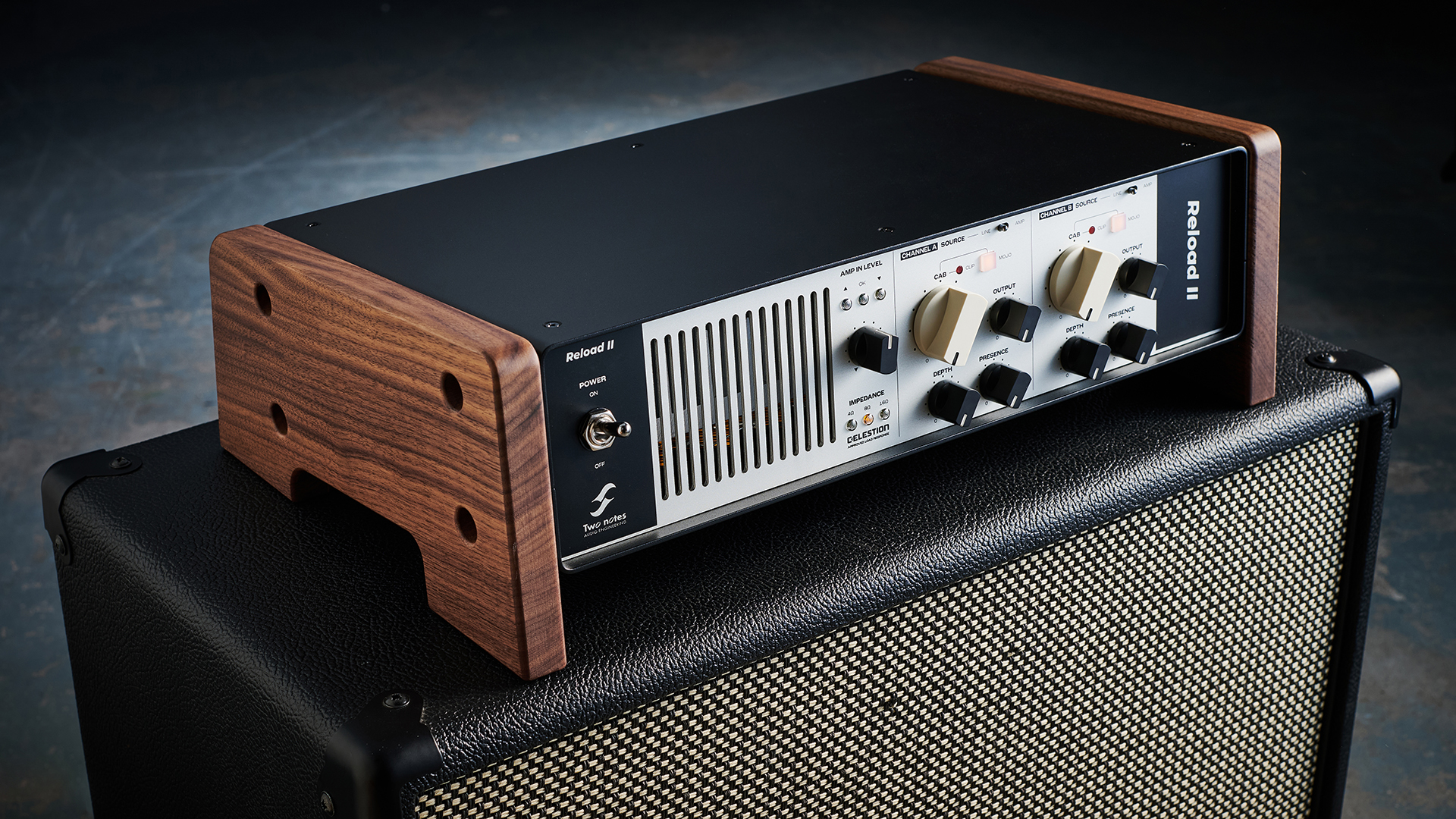MusicRadar Verdict
A chorus pedal with depth and range that makes a convincing case for rediscovering the long-lost studio pro tri-chorus sounds of the '80s, and then for bending them out of shape in search of new tones.
Pros
- +
Huge range of superb modulation sounds.
- +
Deep editing available via app.
- +
Supports full stereo operation.
- +
The Swirl footswitch is clever, and you can attach an external expression pedal.
Cons
- -
All these features will cost you.
- -
Might be too much modulation for casual users.
MusicRadar's got your back
Eventide TriceraChorus: What is it?
Evoking the triceratops, that long-extinct, horn-headed favourite from the Crustaceous Period, was not an accident from the product development team at Eventide.
There’s something Jurassic Park about this new BBD-driven chorus pedal of theirs, a classic chorusing sound extracted from the amber, rehoused and reanimated as the TriceraChorus.
Think tri-chorus and the ‘80s come into vision. But there is something cyclical about our demand for certain guitar effects – just look at the demand for phaser pedals – that it makes perfect sense of a brand such as Eventide to revisit tri-chorus and see how it could be adapted for 21st-century guitar playing.
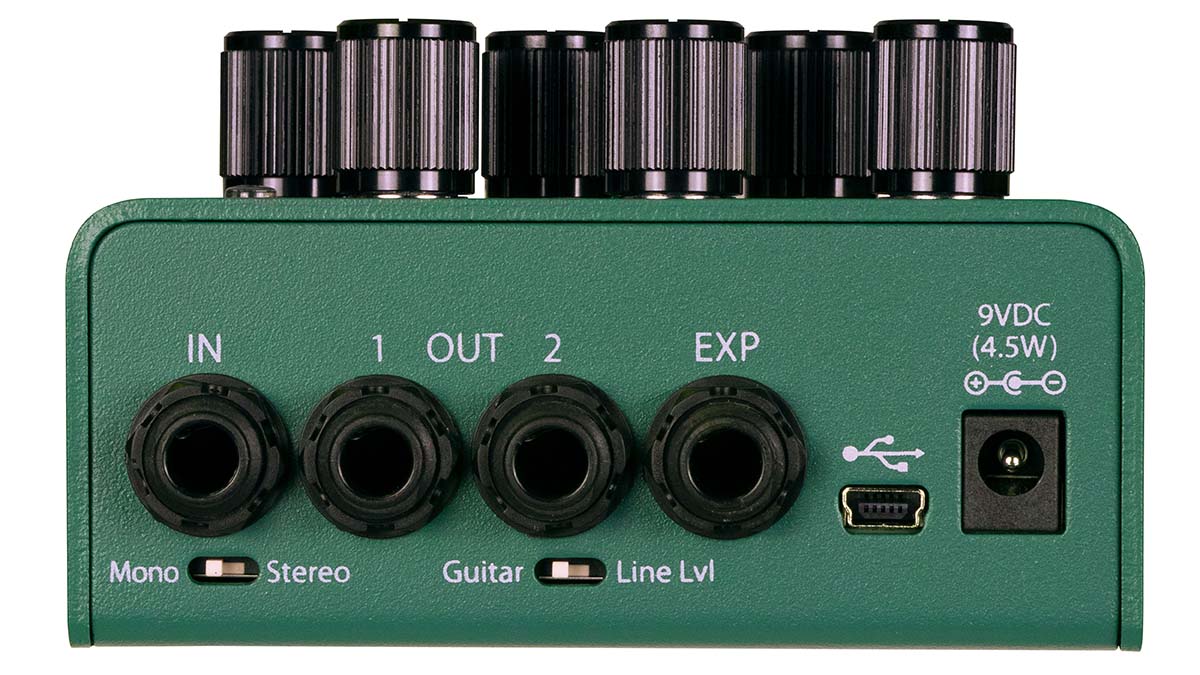
As it turns out, they’ve done quite a lot of adapting. The TriceraChorus arrives in a similar enclosure to other flagship guitar effects pedals such as the MicroPitch and UltraTap delay pedals, so tweakers know they are in for a treat.
As the name implies, tri-chorus applies not one but three delayed lines to modulate your signal. The TriceraChorus is inspired by vintage chorus units from the ‘70s and ‘80s. Some of these tri-chorus units were not even designed with guitar in mind.
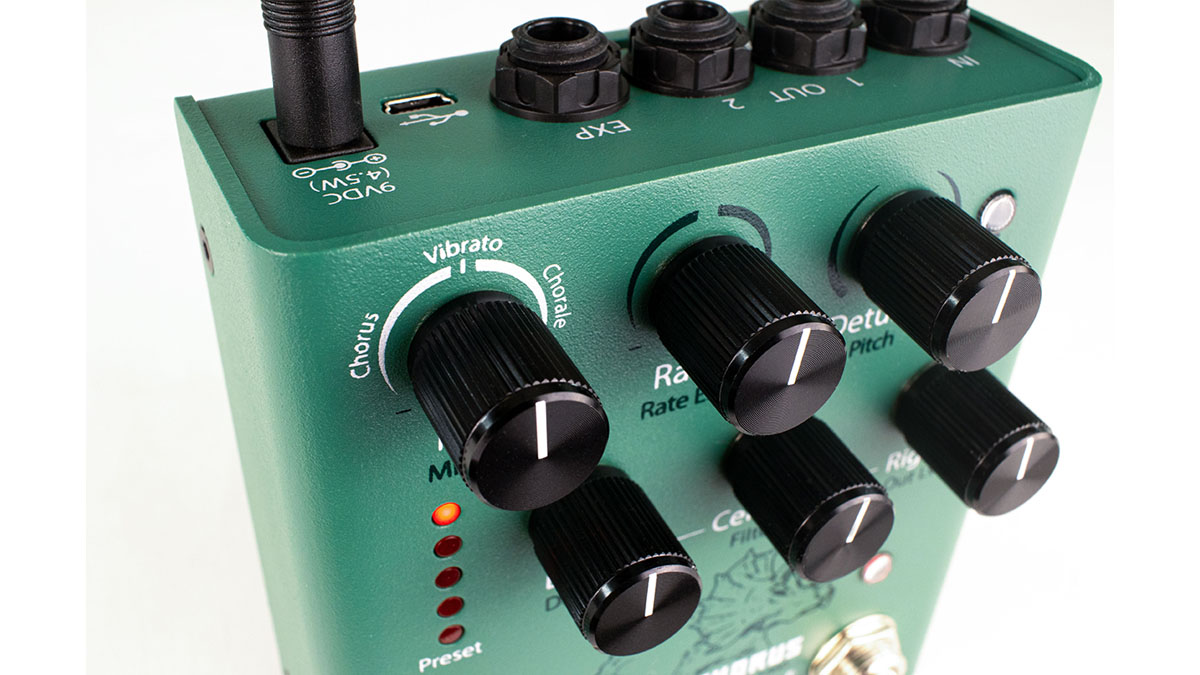
The Dytronics CS-5 Tri-Stereo Chorus, for instance, was originally analogue design to use with a modded Fender Rhodes piano, but soon found its true purpose on records made by Dann Huff, Michael Landau, Steve Lukather and other LA studio pros. A holy grail effect, the CS-5 has been released as a plugin – notably by Universal Audio – and has become a by-word for lush.
The TriceraChorus is a new pedal but not a new sound. Eventide originally housed the TriceraChorus algorithm on its H9 multi-effects unit. And like others in the dot9 series, it has deemed it worthy of a standalone release.
The sort of lush, super-pro sheen you might hear from a CS-5 or pretty much any mainstream pop-rock record in the ‘80s is the sort of thing the TriceraChorus eats up. But there’s more going on. Eventide has equipped the TriceraChorus with a Swirl feature, for added headiness, and once more we have a modulation pedal that knowingly blurs the line between chorus and phase-shifting, flanger-esque sounds and vibrato.
Eventide TriceraChorus: Performance and verdict
The TriceraChorus can be operated in mono or in stereo for full three-dimensional immersion. Like the other pedals in the series, we have a host of presets to access for a quick tour of the pedal and a launchpad for dialling in our own, and while the features can be bewildering at first, with knobs pulling double-shifts with secondary functions, it makes sense once you get going.
The unit ships with five onboard presets, and there are five vertically arranged red LEDs to help you navigate through them. Hook the TriceraChorus up with MIDI or USB connection and there are 127 presets available. They will undoubtedly come in handy the more time is spent with the pedal.
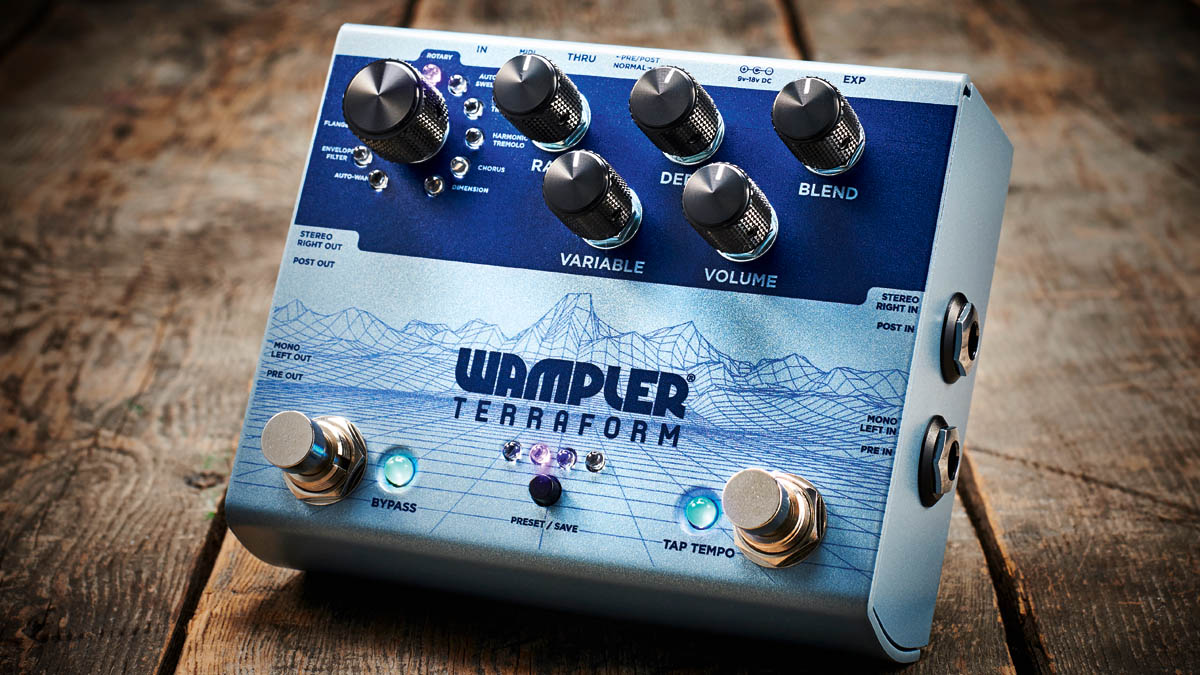
• Wampler Terraform
A super-versatile modulation unit that's not going to bogart too much pedalboard real estate, with a pre/post operation, what's not to like?
• Strymon Mobius
Take a trip through modulation sounds of yore with the Mobius, which presents modulation effects from the past five decades with contemporary functionality.
• TC Electronic Corona
The compact chorus pedal that tests positive for awesomeness, versatility and value.
Our first port of call is the mix knob located on the top-left of the enclosure. Fully anti-clockwise and there is no chorusing, but as you cycle through it chooses which core flavour of effect you are getting, beginning with chorus, then vibrato, and onto chorale.
The chorus sounds yield many moments of recollection, classic chorus pedals of yore, and at noon on the dial the signal gets 100 per cent wet and you’re in full-on vibrato.
Keep going, however. Further clockwise you enter the TriceraChorus’ Chorale sounds, those sounds refashioned from the DNA of the aforementioned fossilised rack units in the amber. There are a trio of dials marked Left, Middle and Right for controlling the depth of the three modulation voices, and dials for Rate and Detune. The former is self-explanatory, the latter adds in how much of the MicroPitch detuning you want, with its secondary function adjusting the pitch that is being detuned.
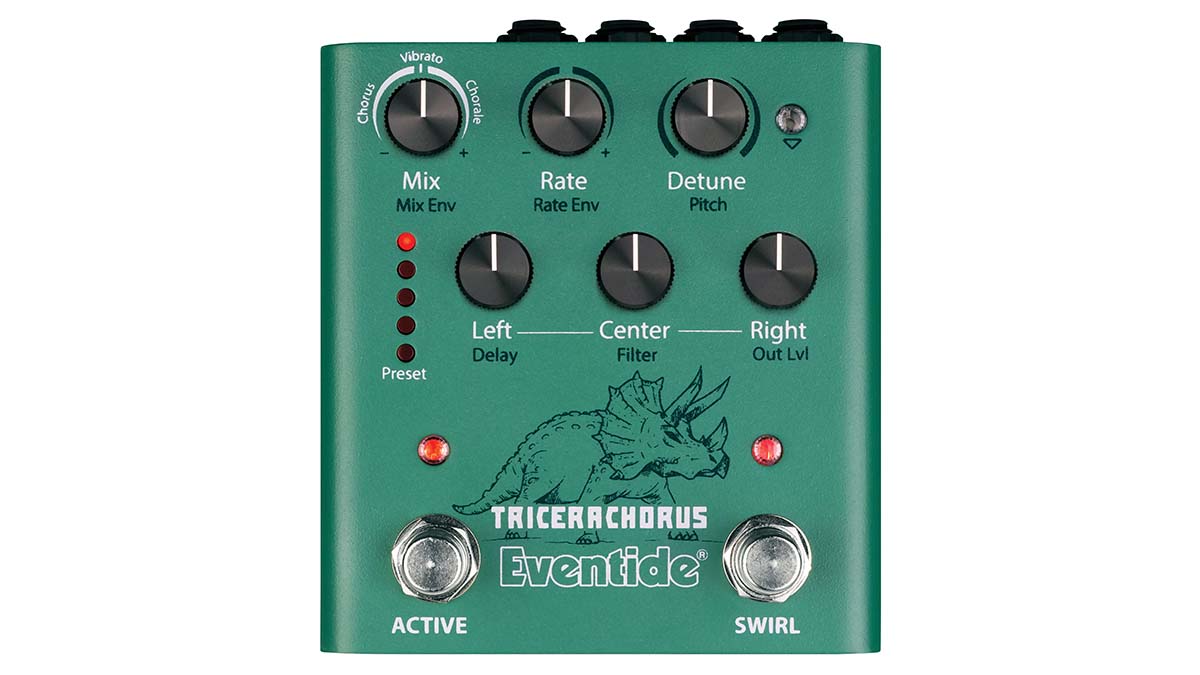
This MicroPitch feature is fancy pants business for an old-school chorus pedal and is an effect in its own right. Perhaps one effective strategy is to dial in the chorusing sound you want, and then see how it can augment your tone, widening it, giving it a quasi-mechanical rotary feel.
Other secondary parameters allow you to add delay (up to 200ms), a lo or hi-cut filter, and there are envelope controls that can be applied to the Mix (again, the type of chorusing) and the Rate, which make the TriceraChorus respond to your playing. Very clever, and an evolutionary leap for dinosaur and chorus pedal alike.
The Eventide Device Manager (EDM) software is no added extra. It can be invaluable for deep editing and managing your sounds, and is intuitive and fun to use. There are so many inspiring sounds to come out of the TriceraChorus, from vanilla chorusing to other more extreme sounds.
With regards the latter, the Swirl switch comes in real handy, and may even inspire the odd acid flashback among a certain cohort. Either way, any short cut to psychedelic guitar tone, to expanding upon the basic brief of gussied-up ‘80s chorus, is welcome, and when allied to the potential of the expression pedal input or external control pedals, it makes the TriceraChorus a powerful performance tool, and a powerful source of modulation.
MusicRadar verdict: A chorus pedal with depth and range that makes a convincing case for rediscovering the long-lost studio pro tri-chorus sounds of the '80s, and then for bending them out of shape in search of new tones.
Eventide TriceraChorus: The web says
“With a real sense of dimension and movement, it offers a lovely wash of enriched sound with as much warble and pulse as you need. That’s even before bringing in the Swirl effect, which adds its phasey layer over proceedings – a soft haziness that can transform the sound so it’s like a second effect.”
Guitarist
“If you want quintessentially ’80s sounds, this pedal will get you there instantly. If that’s not your bag, you might not need all the extra fuss. But this Eventide has plenty of sonic rewards to offer anyone who’s even a little curious about chorus exploration and wants to embiggen their tones.”
Premier Guitar
Eventide TriceraChorus: Hands-on demos
Eventide
Guitar World
Pete Thorn
Eventide TriceraChorus: Specifications
- ORIGIN: China
- TYPE: Chorus pedal
- FEATURES: Multiple Bypass options (Buffered, Relay, DSP+FX or Kill dry), latching or momentary footswitch action, 5 onboard presets, 127 total presets, software editing
- CONTROLS: Mix/Mix Env, Rate/Rate Env, Detune/Pitch, Left/Delay, Center/Filter, Right/Output Level, Shift button, footswitch latching/momentary button, preset save button, Mono/Stereo switch, Guitar/Line level switch, Active footswitch, Swirl footswitch
- CONNECTIONS: Standard input, standard outputs 1 & 2, EXP, USB
- POWER: Supplied 9V DC adaptor 200mA
- DIMENSIONS: 100 (w) x 115 (d) x 58mm (h)
- CONTACT: Eventide Audio
MusicRadar is the number one website for music-makers of all kinds, be they guitarists, drummers, keyboard players, DJs or producers...
- GEAR: We help musicians find the best gear with top-ranking gear round-ups and high-quality, authoritative reviews by a wide team of highly experienced experts.
- TIPS: We also provide tuition, from bite-sized tips to advanced work-outs and guidance from recognised musicians and stars.
- STARS: We talk to musicians and stars about their creative processes, and the nuts and bolts of their gear and technique. We give fans an insight into the craft of music-making that no other music website can.
